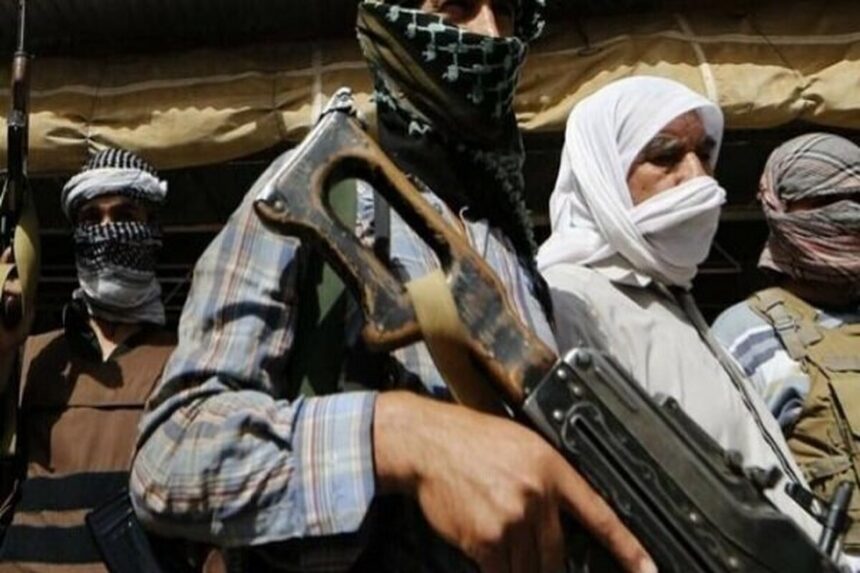RASC News Agency: Since the Taliban’s violent seizure of power in August 2021, Afghanistan has undergone a harrowing transformation from a fragile republic to a brutalized state of fear an open-air prison where survival is contingent upon submission, silence, and ethnic loyalty. What remains of civil society, democratic institutions, and human dignity has been systematically dismantled by a regime that governs not through law or public consensus but by intimidation, surveillance, and violence. The Taliban, far from being a mere political force, have become the architects of a coercive order that is totalitarian in structure and theocratic in justification. The result is a nation in suffocation where justice has vanished, voices have been silenced, and the only authority is terror. The Taliban’s so-called “Islamic Emirate” has embarked on a sweeping purge of all non-Pashtun representation from public institutions. Tajiks, Hazaras, Uzbeks, and Qizilbash once integral to the state’s administrative framework have been dismissed en masse and replaced by hardline loyalists, many of whom lack even the most basic qualifications for public service. These ethnically targeted purges are not incidental but structural, part of a larger effort to consolidate power within an ethno-tribal monopoly, ensuring absolute Taliban control over every facet of government.
According to reports from Human Rights Watch and the United Nations Assistance Mission in Afghanistan (UNAMA), these purges have extended beyond mere exclusion to violent repression. Dozens of former officials from non-Pashtun communities have been arbitrarily arrested, tortured, or driven into exile. Entire neighborhoods in central and northern provinces have seen their lands seized and their civic rights revoked, leaving thousands in bureaucratic limbo, unable to access even the most basic services. For many Hazara citizens, routine documentation such as birth certificates or land deeds can now only be obtained by bribing local Taliban commanders or clerics. In cases where bribes are refused or unaffordable, properties are confiscated and families forcibly evicted acts that amount to state-sanctioned ethnic cleansing under the guise of governance.
Extortion has become the central organizing principle of the Taliban-run administration. Public services already gutted by incompetence have been reduced to lucrative black markets operated by Taliban intermediaries. A report by the U.S. State Department in early 2024 revealed that the cost of obtaining a national ID card or passport has skyrocketed to between 66,000 and 240,000 Kabuli rupees (approximately $800 to $3,000), effectively pricing citizenship out of reach for the poor. Those who cannot afford to pay are either left undocumented or subjected to humiliating delays and interrogations, with some forced to pay additional bribes merely to prevent arrest on fabricated charges of “fraudulent application.”
Electricity once a basic state-provided utility has become another tool of Taliban extortion. Human Rights Watch has documented numerous cases where families were falsely accused of power theft and coerced into paying exorbitant fines. In many cases, refusal to comply led to arbitrary detention, physical abuse, or public flogging. The electric grid, much like every other facet of life in Taliban-run Afghanistan, is no longer a service it is a weapon wielded against the population to extract compliance and cash. Nowhere is the regime’s predatory nature more visible than in the plight of Afghanistan’s street vendors. These informal workers, already living on the margins of economic collapse, are routinely extorted by Taliban agents who demand daily “stall taxes” of up to 2,000 Kabuli rupees (around $20). Vendors who fail to pay are assaulted, their goods destroyed, and their stalls confiscated. Several vendors in Kabul told RASC News Agency that they were forced to fly Taliban flags on their stalls as a condition of being allowed to operate, a grotesque fusion of political propaganda and economic humiliation.
Worse still is the Taliban’s abuse of law enforcement and intelligence structures to maintain a state of perpetual fear. Surveillance of civilians has reached dystopian proportions. Taliban intelligence monitors phone messages, private group chats, and social media activity, seeking out criticism of the regime or even casual remarks about inflation or corruption. A single message questioning fuel prices or mocking a Taliban edict can result in a 24-hour disappearance, followed by a coerced confession, beating, or worse. UNAMA has reported that in the past six months alone, more than 1,200 Kabul residents have been detained in secret facilities for nothing more than expressing dissent in private conversations.
The Taliban’s culture of impunity also enables widespread sexual exploitation and trafficking. In provinces with high rates of homelessness, Taliban-linked networks have lured destitute women especially widows and displaced persons into forced sex work under the threat of imprisonment or starvation. The regime has turned gender apartheid into a system of sexual commerce, profiting from the very desperation it has inflicted. Human Rights Watch has classified this as a form of state-enabled trafficking and called for urgent international accountability, though the perpetrators remain unpunished. Mass arrests of peaceful activists and the targeted killing of dissidents have become normalized. A confidential Amnesty International report obtained by RASC confirms the existence of Taliban “death lists” targeting women’s rights defenders, former journalists, and youth activists in Kabul, Herat, and Balkh. Those detained are often tortured in front of family members or paraded in coffins during public prayers a macabre psychological tactic aimed at instilling terror within the population.
The psychological toll of this systematic brutality is devastating. According to UNAMA data, suicide rates particularly among urban youth have more than doubled since 2021. Unemployment, food insecurity, and forced disappearances have created a national epidemic of despair. A Kabul-based psychologist interviewed by RASC remarked: “Hope has vanished. When a young man sees no future and a girl sees no school, the only thing they both see is a wall. And behind that wall is the Taliban.” The Taliban’s rule has extinguished nearly every ember of hope that once existed in Afghanistan’s fragile civic life. The state has collapsed into a landscape of bureaucratic blackmail, ethnic exclusion, and ideological terror. This is no longer a regime it is a machinery of cruelty that survives by squeezing the last breaths out of the people it claims to represent.
For the international community, the time for polite condemnation has long passed. Empty rhetoric and symbolic gestures offer no shield against this rising tyranny. What is required now is bold, coordinated action: universal travel bans on Taliban leaders; targeted economic sanctions on Taliban-owned front businesses; emergency evacuation programs for endangered civilians; and the pursuit of war crimes trials for those responsible for mass killings and gender persecution. Without such steps, Afghanistan risks becoming a graveyard not just of democracy, but of human worth itself. This is no longer simply a humanitarian crisis. It is a moral collapse a failure of the world to act in the face of a regime that has declared war on its own people.






